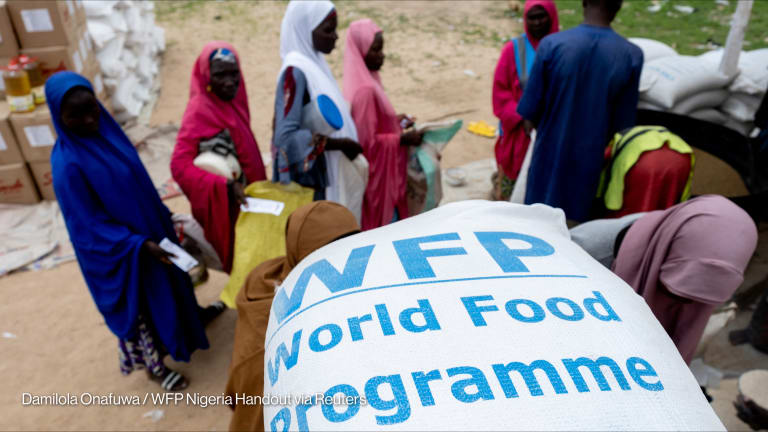Aid delivery mechanisms are not devoid of corruption. This was the consensus at a workshop on humanitarian relief at the 13th International Anti-Corruption Conference, held Oct. 20 to Nov. 2 in Athens. Experts and development professionals acknowledged that even though not every donor or humanitarian organization is equally exposed to corrupt practices, such incidences are gradually increasing.
Ten years ago, "nobody would dare to come public with corruption cases in humanitarian assistance," said Roslyn Hees, senior advisor at Transparency International. But proactive media and anti-corruption organizations have prompted the publication, prosecution or mediation of more and more cases.
The workshop focused on the international response to the 2004 Indian Ocean tsunami. There was misconduct. For instance, according to the Norwegian Chr. Michelsen Institute, part of the funding for social action programs was improperly diverted. In addition, in 2006, Oxfam discovered losses of $22,000 related to procurement in its post-tsunami Aceh program. Much to its credit, the organization immediately disclosed the finding.
Many international non-governmental organizations have established strategies and auditing mechanisms for fighting corruption internally. Despite the fact that very few allegations have been published, experts and development professionals publicly acknowledged the difficulties they are facing in this respect.
Corruption is particularly frequent in procurement, especially in the public sector as a result of insufficient coordination on reconstruction and development programs by various development partners, said Hees.
Peter Walker, director of Tufts University's Alan Shawn Feinstein International Center, called corruption in humanitarian assistance "an extreme example of power abuse." His institute's research on the world's seven biggest humanitarian organizations shows that most aid workers regard corruption as harmful for their reputation. Interestingly, only the third most common description of corruption was that it may compromise a program's efficiency.
When interviewed on obstacles to tackling corruption, the most common answer was that "if dealing with corruption brings more costs into administration, we can't afford to do it."
In their struggle to fight corruption, humanitarian organizations are faced with a twofold challenge. They need to put in place monitoring and auditing mechanisms for tackling corruption without compromising their ability to respond immediately to humanitarian emergencies. In most cases, "you simply cannot afford to slow down" since lives are at stake in emergency situations, said Ingrid Milne, associate director of operations with the Save the Children Federation in Southeast Asia.
In several cases, complaints have been filed from local staff claiming that their expat colleagues' lavish lifestyles are indicative of power abuse. Could that be categorized as corruption?
"Everything falls into the gray area" in humanitarian assistance, Walker said.
Another obstacle to eradicating corruption, raised in Greece, was the lack of capacity on the part of local bodies. Following an emergency, a high volume of aid flows into impoverished areas. In most cases, local governance structures are unable to administer programs efficiently.
Juree Vichit-Vadakan, secretary-general of Transparency International Thailand, demonstrated how such volumes of aid have eroded community-based relations.
"Rush on behalf of humanitarian organizations, which want to get their job done quickly, coupled with behaviors of greed and individualism on behalf of local officials" have had destructive consequences in the tsunami-affected regions of southern Thailand, Vichit-Vadakan said.
In Banda Aceh, one of the region in Indonesia that was hardest hit by the tsunami, a lack of local leadership has hampered the efficient implementation of reconstruction programs. What happened, according to Rezki Wibowo, deputy executive director of Transparency International Indonesia, was that local leaders had to be "formed" since many officials perished in the tsunami aftermath. But the new "leaders" had neither the experience nor the skills for handling big reconstruction programs, thereby compromising the quality and impact of those interventions.
Conference attendees recommended: a policy of zero tolerance towards corruption in both headquarters and field offices, external and internal fraud and corruption audit units, improved inspections, as well as policies to encourage and protect whistleblowers.








